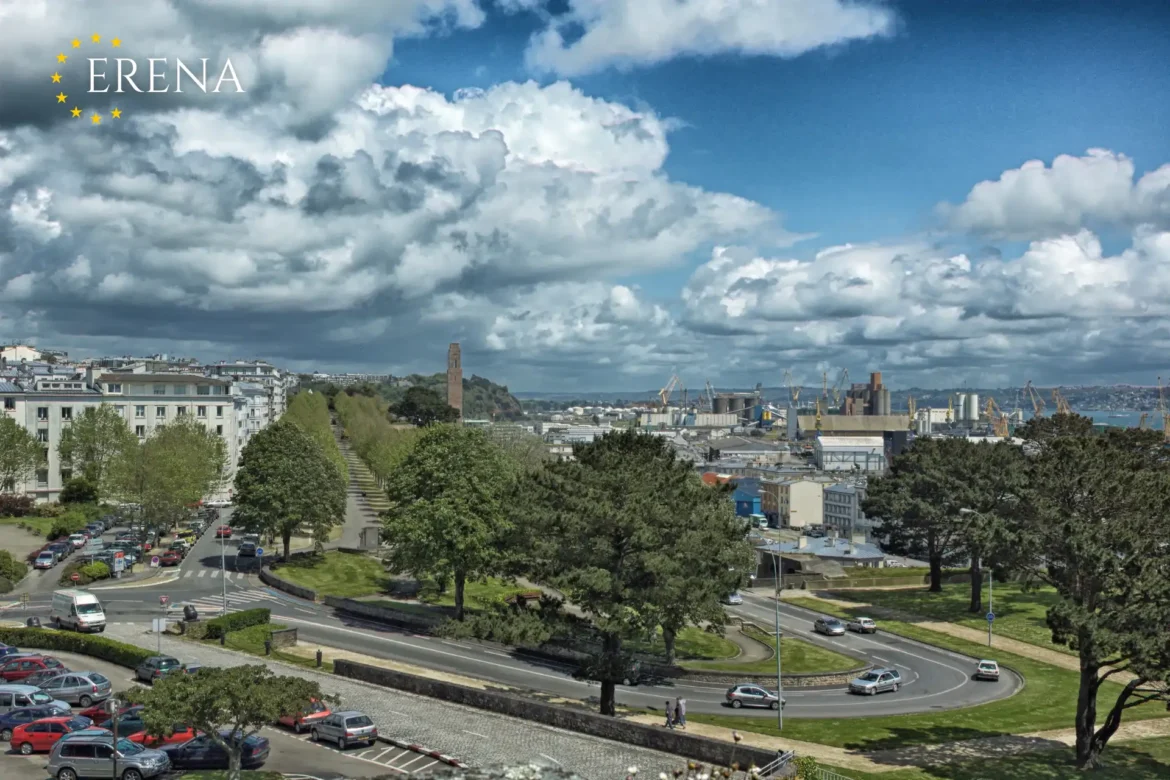Brest, a picturesque port city located in northwestern France, has become a popular destination for newcomers due to its affordable cost of living and charming coastal atmosphere. Whether you’re considering relocating to Brest or investing in real estate, this guide provides a detailed overview of living costs and the local real estate market.
Overview of Brest’s Cost of Living
Brest offers a lower cost of living compared to major French cities like Paris, Lyon, and Bordeaux. This makes it an appealing option for those seeking a balanced lifestyle with access to modern amenities, cultural attractions, and natural beauty. On average, Brest’s cost of living is 15-25% lower than Paris.
Key Aspects of the Cost of Living in Brest:
- Housing Costs
- Utilities
- Groceries and Dining
- Transportation
- Healthcare and Education
1. Housing Costs in Brest
Property Prices
The real estate market in Brest is known for its affordability, with a wide range of options to suit different budgets. As of 2024, property prices are:
- City Center (Brest Centre): €2,200 to €3,000 per square meter
- Suburban Areas (e.g., Pontanezen, Saint-Marc): €1,500 to €2,000 per square meter
- Coastal Areas (e.g., Plouzané, Guilers): €2,200 to €3,500 per square meter
Rent Prices
Renting in Brest is also quite affordable compared to other French cities. Average monthly rents are:
- One-bedroom apartment in the city center: €500 – €750
- One-bedroom apartment in the suburbs: €400 – €600
- Three-bedroom apartment in the city center: €850 – €1,200
- Three-bedroom apartment in the suburbs: €700 – €1,000
Property Types
Brest offers a variety of properties, including modern apartments, historic homes, and new developments. Whether you prefer a cozy apartment in the city center or a larger family home in the suburbs, there are options for every taste and budget.
2. Utilities
Utilities in Brest are relatively affordable. For an average apartment of 85 square meters, you can expect to pay:
- Monthly utility bills (electricity, heating, water, garbage collection): €100 – €150
- Internet and TV: €30 – €50 per month
3. Groceries and Dining Out
The cost of groceries in Brest is moderate. A typical monthly grocery bill for one person is around €200 to €300. If you prefer dining out, here are some average costs:
- Meal at an inexpensive restaurant: €15 – €20 per person
- Three-course meal at a mid-range restaurant: €25 – €40 per person
- Coffee at a café: €2 – €3
4. Transportation Costs
Brest’s public transport system (Bibus) offers affordable fares:
- Single ticket: €1.50
- Monthly pass: €25 – €30
- Annual pass: €250 – €300
If you prefer driving, the cost of petrol is €1.80 – €2 per liter, and on-street parking in the city center costs €1 – €2 per hour.
5. Healthcare and Education
Healthcare
Healthcare in Brest is of high quality. As a resident, you’ll likely be eligible for the French public healthcare system (Sécurité Sociale). Basic private health insurance typically costs €30 – €80 per month.
Education
Brest has a range of educational options, including free public schools and private institutions with fees varying based on the school.
Summary of Living Costs in Brest
Here’s a quick snapshot of the living costs in Brest for a single person:
- Rent (1-bedroom apartment, city center): €500 – €750/month
- Utilities: €100 – €150/month
- Groceries: €200 – €300/month
- Transportation: €25 – €30/month for a monthly pass
- Healthcare insurance: €30 – €80/month
Conclusion
Brest offers a relatively affordable cost of living while providing access to high-quality services, beautiful coastal landscapes, and a rich cultural scene. Whether you’re looking to rent or buy, Brest’s real estate market offers attractive options for various budgets. The city’s combination of affordable housing, excellent public transport, and a relaxed lifestyle makes it a great place to settle for those seeking a change of pace from more expensive urban centers in France.

